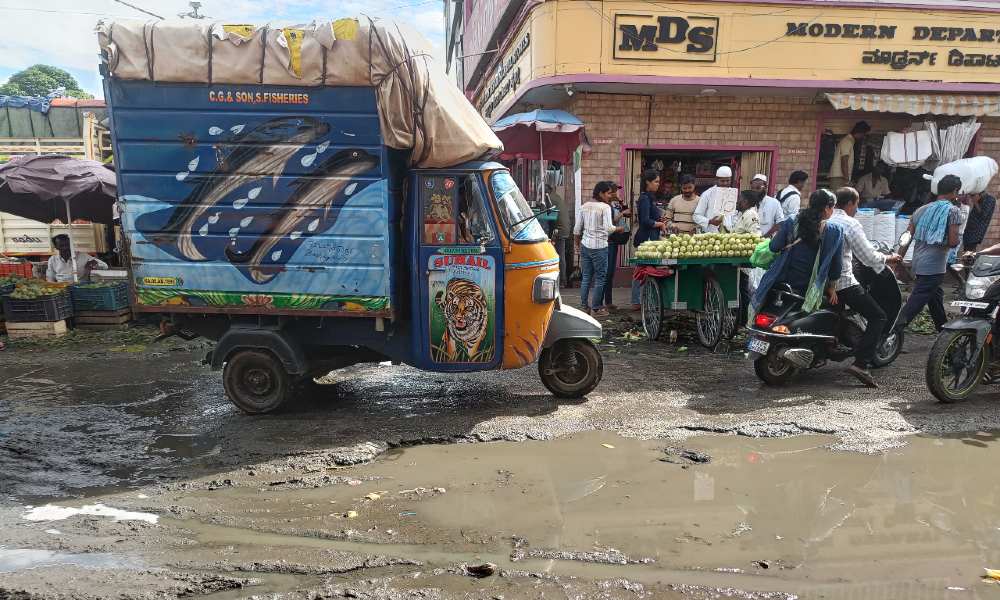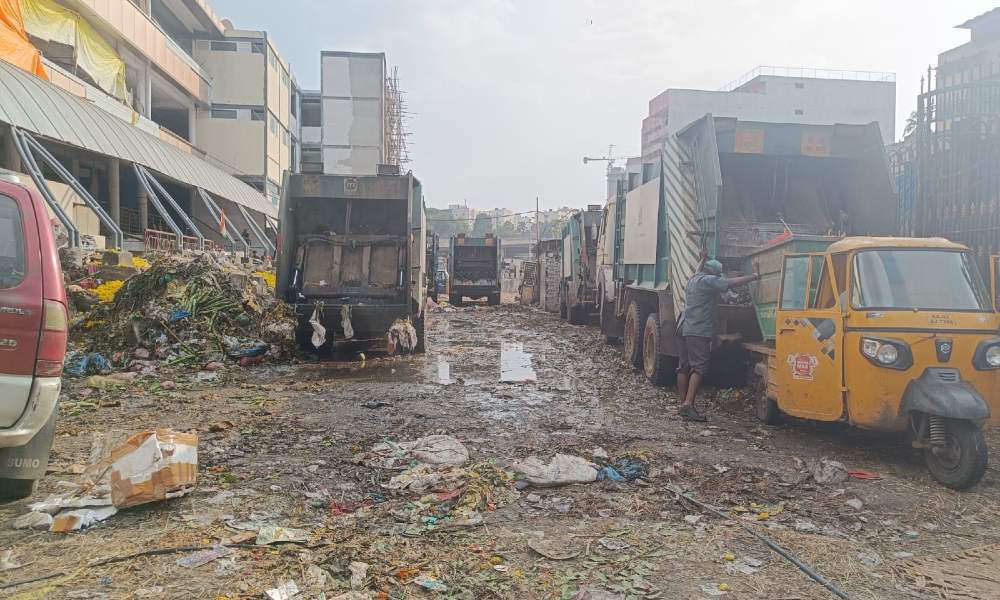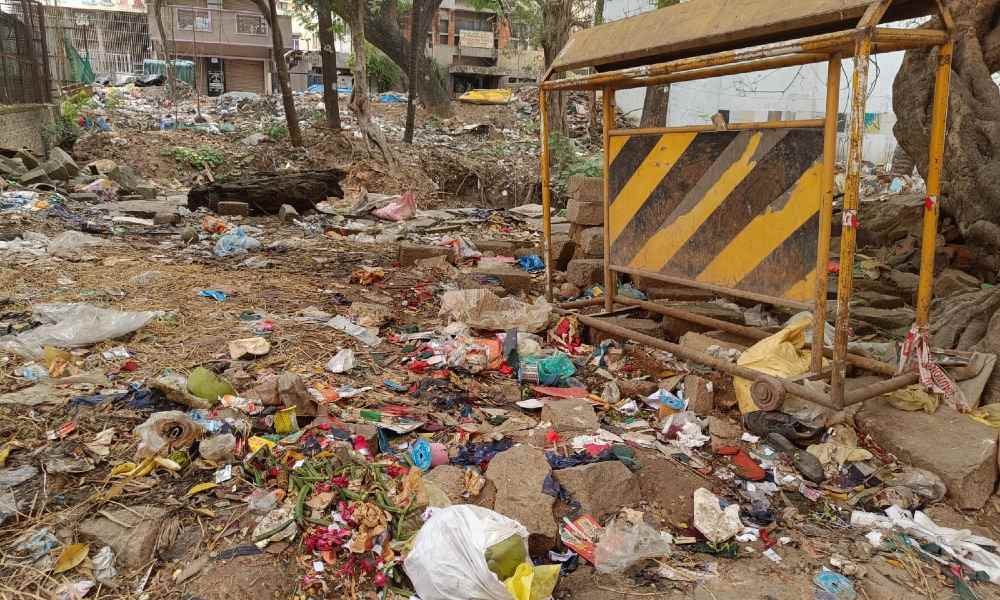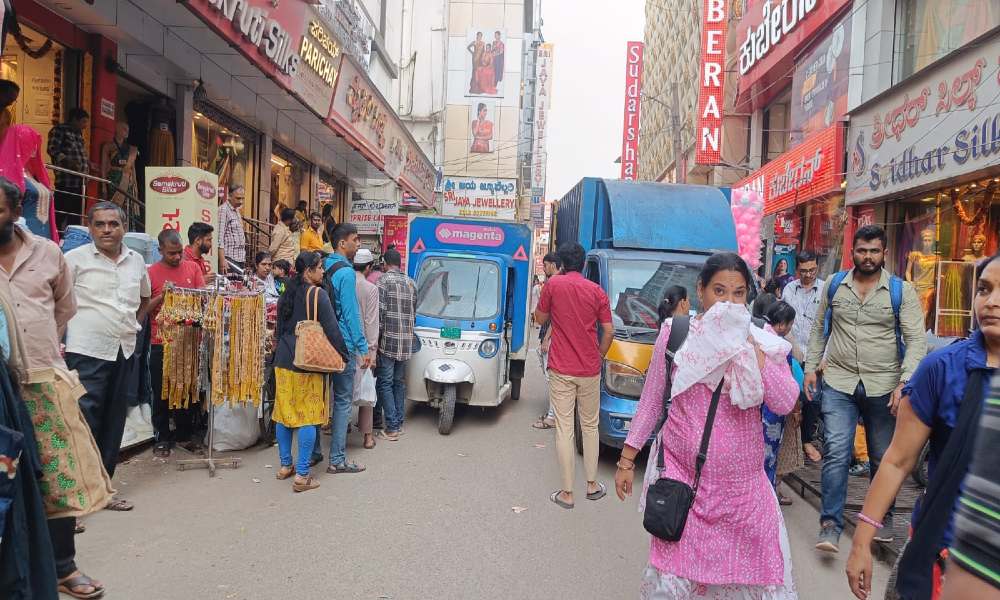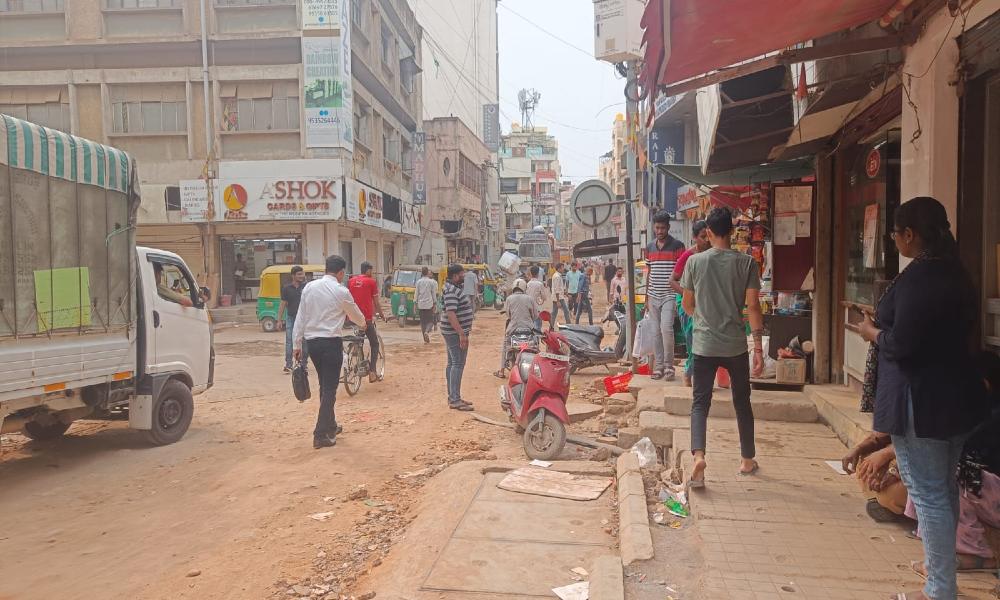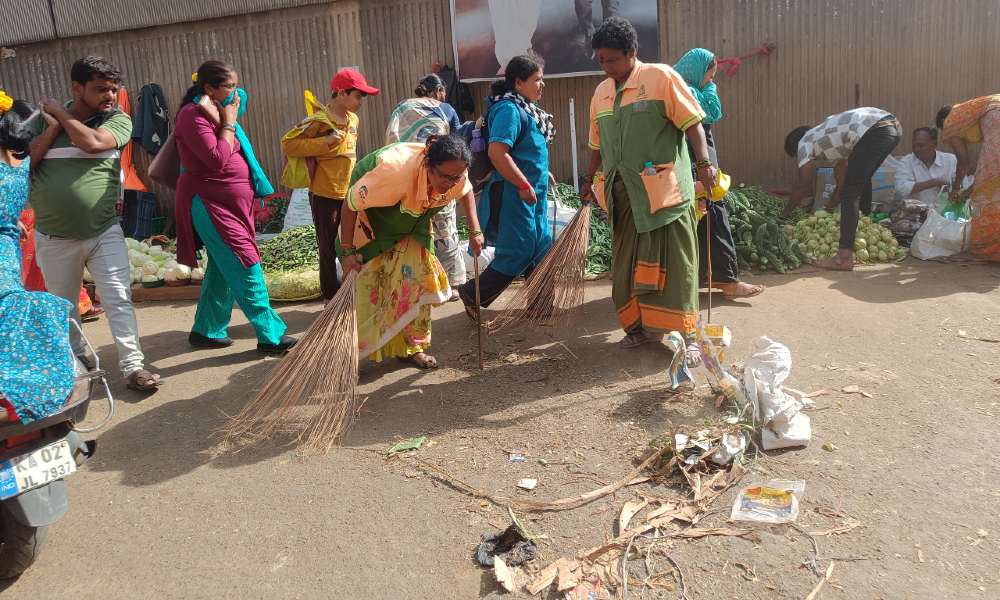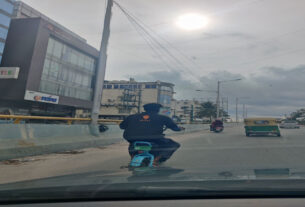Road and infrastructure works around the KR market building not soon in future, says official.
Smart city plans for the KR Market area are still ongoing after five years of proposal. The market is in chaos with poor infrastructure, broken roads, uncontrolled traffic and unhygienic shopping environments.
“We’ve been hearing ‘smart market’ since three years. Nothing happens here,” said Abdulla, a shop owner in KR Market. He said that all the shop keepers have lost hope now. “You should see the condition when it rains. Everything gets muddy, dirty and stinky,” he said.
Bengaluru Smart City Limited (BenSCL) allocated the KR market area redevelopment works to a Non-Governmental Organization (NGO), Jana Urban Space. Their proposed Smart Plan for KR Market started in June 2017, and was supposed to be finished by March 2019. But the status of the project is still ‘ongoing’.
“We completed the DPR for the project in 2019 and then it was rendered three times but there were no bidders,” said Nithya Ramesh, who leads Jana Urban Space’s design practice. She also said that the project is ongoing in their site and the government has not yet cancelled the project.
The NGO plans aim to convert KR Market into a sustainable, thriving economic centre of culture and social importance, while amplifying its historical importance and giving it an identity. The focus includes smooth movement of goods, organised loading and unloading, reconstruction of meat market, well-designed road around the market etc.
A BenSCL official said that the project is being delayed due to several general reasons, and also agreed to the lack of bidders for the project. “We are not planning to do anything in the roads surrounding the KR Market area,” they said.
“There is not enough space in the market. We are doing whatever we can and some places are dead areas, and nothing can be done there,” said Narendran, tax officer in KR Market BBMP. He said that everything will be resolved, but it will take time.
Vikram Bhat, Principal Architect and Urban designer, suggested that the work could be done in a phased manner. “Stage-wise, priority-based planning can be done here. Instead of doing the entire road, maybe complete half or quarter work of the road. Things can be added after. Finish the infrastructure and get it over with, because that’s the most important thing,” he said.
He also mentioned the historical significance of KR Market. “KR Market is a big magnet. People come there to shop. It’s been happening for a long time. And it will happen in the future as well,” he added.
The roads and the footpaths around the KR Market are packed with goods and vehicles, forcing the pedestrians to walk on the road. “The vehicles are parked randomly here, which creates traffic block all the time. There is no place to walk,” said Rakesh, a pedestrian.
“Channelized entry is arranged in KR market. We have built bus shelter, KR Market subway and toilet facilities in west block,” said BenSCL. The KR market smart city proposal mentioned organization of vehicular and pedestrian movement around the market, provision of loading unloading bays and time allotment in goods movement.
Mr. Narendran said that traffic management is really difficult, with around 5000 vehicles coming to the city daily. “The trucks coming from Kerala, Hyderabad, Andhra and Tamil Nadu are not allowed inside the city. The goods are moved to small vehicles and are brought to the market, to reduce the traffic congestion,” he said.
Mr. Bhat suggested re-organisation in terms of pedestrian movement and reduction of transport vehicles as a solution, “It is always better to have a pedestrian-friendly environment. People and traffic don’t go well together. One solution is to put a full stop on traffic in particular times and pedestrianize the road.”
He also said that the load can be reduced on the infrastructure by controlling the traffic, and by organizing KR Market to a congestion-free zone. “Goods are coming and going from and to the market all the time. You can allot time slot for goods to come in and come out. Say, 5-7 in the morning,” he suggested.
Mr. Bhat said that the primary interest should be the welfare of the vendors, and they should be compensated for the losses as part of the project. “Whatever development is done, it shouldn’t infringe the shops. Ultimately, it’s all about economy. We should think about what can be done to compensate for the losses incurred by the people,” he said.

